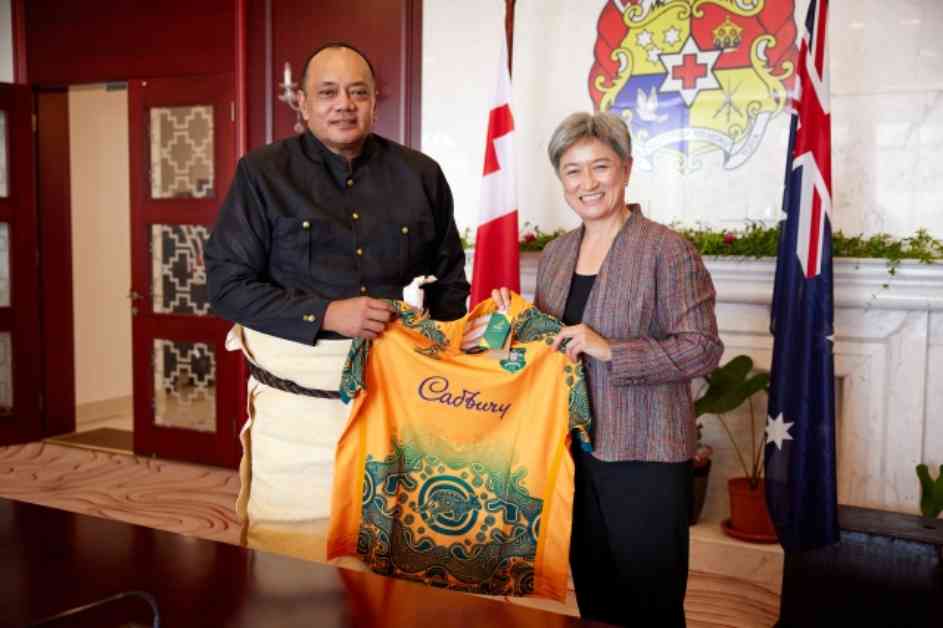Taiwan’s Future in Pacific Regionalism: Analysis of the 53rd PIF Leaders Meeting
Taiwan’s involvement in Pacific regionalism has been a subject of great interest and debate, particularly in light of the recent 53rd Pacific Islands Forum (PIF) Leaders Meeting held in Tonga. With only three official allies in the Pacific region – Tuvalu, Palau, and the Marshall Islands – Taiwan faces significant challenges in maintaining its presence and influence amidst China’s growing dominance in the area. The dynamics of the PIF Leaders Meeting, which serves as a crucial platform for regional decision-making, shed light on the complexities of Taiwan’s position in Pacific regional networks.
**Challenges and Controversies at the 53rd PIF Leaders Meeting**
The 53rd PIF Leaders Meeting, hosted by Tonga in August 2024, highlighted the ongoing tensions and conflicts between Taiwan, China, and Pacific nations allied with either side. As a “development partner” of PIF, Taiwan participates under the name “Taiwan/Republic of China,” engaging primarily with its Pacific allies. However, the meeting was marred by controversies that underscored the challenges Taiwan faces in maintaining its position in the Pacific.
One significant conflict arose when Solomon Islands, which had switched diplomatic recognition from Taiwan to China in 2019, pushed to strip Taiwan of its “development partner” status within PIF. This move was met with resistance from Palau’s President, Surangel S. Whipps Jr., a staunch supporter of Taiwan, who emphasized the importance of unity within PIF. The clash between countries allied with Taiwan and China reflected the broader geopolitical struggles playing out in the Pacific region.
Another contentious issue emerged during the drafting of the final PIF communique, where a reference to Taiwan’s status as a “development partner” was included in the initial version but later removed. The swift revisions to the communique, following objections from China’s Special Envoy for Pacific Island Countries Affairs, Qian Bo, raised concerns about external influence on Pacific regional affairs. The subsequent removal of all references to Taiwan hinted at the delicate balance of power and interests at play within PIF.
**Implications for Taiwan’s Regional Position**
The controversies at the 53rd PIF Leaders Meeting have significant implications for Taiwan’s standing in the Pacific region. While the removal of Taiwan-related language from the final communique may have been a procedural error, the incident highlighted the vulnerability of Taiwan’s position within PIF. The episode also underscored the influence of external actors, such as China, on Pacific regional dynamics and decision-making processes.
The challenges faced by Taiwan in the Pacific region extend beyond the PIF Leaders Meeting and raise questions about the future of Taiwan’s regional presence. The reluctance of some Pacific countries to engage with Taiwan, as evidenced by Solomon Islands’ silence on inviting Taiwan to the 2025 PIF meeting it is hosting, signals a shift in regional attitudes towards Taiwan. Despite the efforts of Taiwan’s allies to preserve its role in Pacific regionalism, the growing influence of China and the complex geopolitical landscape pose significant obstacles for Taiwan.
**Taiwan’s Diplomatic Achievements and Future Prospects**
Despite the challenges and controversies surrounding Taiwan’s position in Pacific regionalism, Taiwan has made significant strides in its unofficial diplomacy, garnering support from countries like the US and Australia. This strategic outreach has bolstered Taiwan’s international standing and diplomatic relations, even in the face of diminishing official allies in the Pacific region.
Looking ahead, Taiwan’s diplomatic efforts will be crucial in navigating the complex dynamics of Pacific regionalism and maintaining its influence in the region. The upcoming PIF Leaders Meetings, including the 2026 meeting hosted by Palau, offer opportunities for Taiwan to reaffirm its commitment to regional cooperation and engagement. By leveraging its diplomatic partnerships and showcasing its contributions to the Pacific community, Taiwan can mitigate the challenges posed by external pressures and assert its role as a valuable partner in Pacific regional affairs.
In conclusion, the 53rd PIF Leaders Meeting in Tonga shed light on the intricate dynamics of Pacific regionalism and the challenges facing Taiwan in maintaining its position within the region. While the controversies and conflicts at the meeting underscore the complexities of Taiwan’s regional engagement, they also highlight the importance of strategic diplomacy and multilateral cooperation in navigating the evolving geopolitical landscape of the Pacific. As Taiwan continues to navigate these challenges, its commitment to regional partnerships and shared goals will be essential in shaping its future role in Pacific regionalism.












